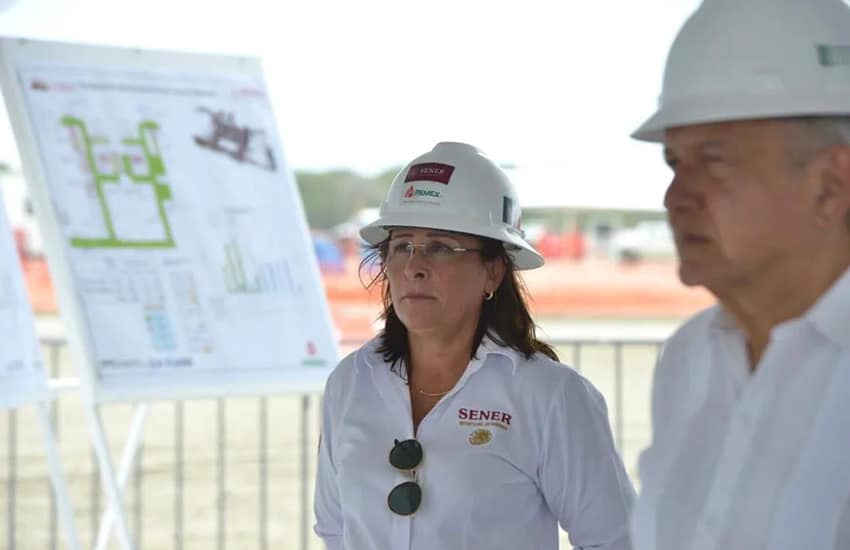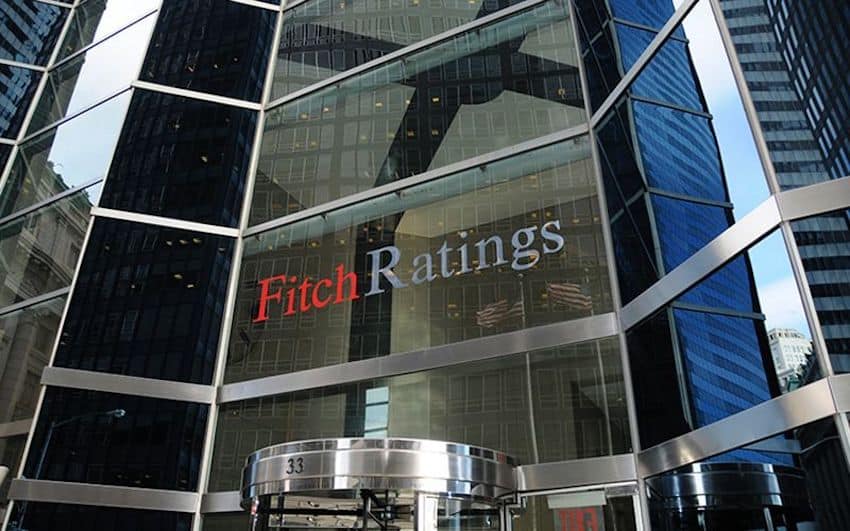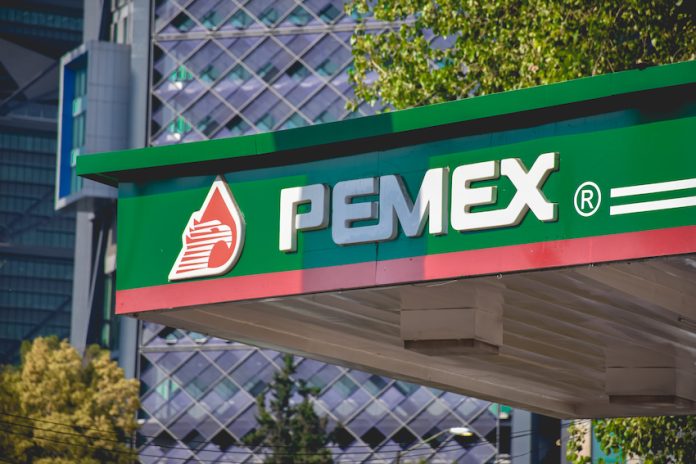Pemex will review its contract with Moody’s Analytics, Energy Minister Rocío Nahle said in an interview with the online newspaper Bloomberg Línea on Monday.
The state-owned oil company’s board of directors will analyze its contract with Moody’s following the credit agency’s July 21 decision to change its outlook for Pemex from stable to negative, giving it a B1 rating, meaning that it considers the company below investment grade and a high credit risk.
The negative outlook could cause Pemex’s credit rating to suffer over the next year.

“We are going to analyze it because we as a company need serious, objective ratings agencies. Every company needs them, and I believe they must be up to the task. We are analyzing it, and we are definitely going to talk to the board about it,” Nahle said.
Moody’s downgraded Pemex — the most indebted oil company in the world, according to the OECD — because the state-owned company does not appear willing to make the changes to its business strategy that Moody’s deems necessary for a more positive outlook.
In recent years, Pemex has suffered a series of accidents and safety scandals. On July 7, a fire broke out at a Pemex platform off the coast of Campeche, injuring six workers.
While Moody’s claimed a ratings upgrade is unlikely in the near term, its outlook on Pemex could stabilize if the company were to implement a new business strategy, it said.

Nahle disagrees with Moody’s evaluation, claiming that its debt payments are consistent and that its finances are bolstered by the peso’s strength. The energy minister noted that Moody’s did not consult with the Mexican government, Pemex’s board of directors or the Finance Ministry when compiling its rating.
“[Moody’s] does not seek the government’s input, be it from the Ministries of Energy and Finance, or Pemex’s board of directors. It makes its rating based only on financial statements. It is very unfortunate,” she said.
Pemex’s head, Octavio Romero, also rejected the downgrade.
“These agencies continue to lie about the lack of government support and the lack of sustainability actions despite the positive results obtained by this administration,” he said.

Moody’s had previously downgraded Pemex in July 2021 and 2022 due to the company’s growing business risk, high debt and a production strategy that could lead to greater operating losses in the short and medium term. It has not upgraded the company’s rating since 2014, a decision that was based on the Mexican government’s financial support of the oil company.
In March 2021, Pemex terminated its contract with Fitch Ratings, another of the “Big Three” credit ratings agencies, after Fitch downgraded Pemex to speculative, or “junk” grade. In its report, Fitch considered Pemex to be one of the most vulnerable oil companies in Latin America.
Despite the absence of a formal contract, Fitch still researches and compiles ratings on the Mexican oil company. On July 14, the ratings agency further downgraded Pemex into junk territory, causing the value of Pemex’s bonds to fall.
Pemex recorded US $176 million in losses in the first quarter of 2023, and its current debt stands at US $110.4 billion.
With reports from Bloomberg Línea, Bloomberg and El Financiero
